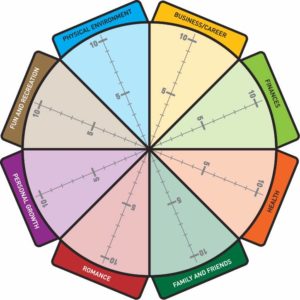The Science behind Happiness

Photo by Noah Silliman on Unsplash
Have you ever thought about the definition of happiness?
When you think of happiness, what is it that you think of? Is it a specific moment in your life? Is it a place? A person? In reality, there is no one way to define happiness. The definition of happiness is simply the state of being happy. Every person has their own way of interpreting this. One may find happiness in solitude, while another may find it in company. One may search for excitement and thrill to be happy, while another searches for peaceful and calming environments. The only universal element of happiness is that it is a basic human need; we all desire to feel happy and need it to live fulfilling lives. Happiness affects all aspects of our lives, and when we are able to achieve it, we can thrive in relationships, income, work performance, health, and more.
Managing Your Expectations Helps!
The gap between our expectations and reality can be a source of stress. Setting goals and expectations for ourselves is important because it keeps us motivated and encourages us to constantly improve ourselves. The larger that gap between our expectations and reality, may create more stress in our lives. When we work towards reducing that gap, we will reduce stress and increase happiness. Take weight-lifting, for example. Say you’ve never really exercised or trained before, but as soon as you start you expect to become the next Dwayne “The Rock” Johnson. This is quite an unrealistic expectation and leaves a huge gap between where you’re currently at and where you want to be. Choosing goals that are unattainable based on your current status makes it more stressful trying to reach that goal, which results in less success. If you choose a more realistic goal, say increasing your bench press weight from 45 kg to 60 kg, you will feel more confidence and control in reaching it. The goal is clear and not hard to imagine, so you are less likely to give up on it. As you can see, the first step in increasing happiness is setting clear and attainable goals for yourself, reducing stress and allowing for yourself to succeed in all different aspects of life.
The Wheel of Life
The Wheel of Life is a great tool for assessing where your stress lies. The categories on the wheel cover all parts of your life that shape who you are and how you feel: family and friends, romance, career, finances, physical health, etc. Take some time to really think about where your life is currently at. Rank each category on a scale from 1 to 10, 1 being not satisfied at all and 10 being very much satisfied. It is important to keep in mind that there is no such thing as a perfect circle. No one is able to give a 10 to every category at once. However, you can find a place on the scale for some categories where you are comfortable and aren’t too stressed, giving you time to focus on more crucial categories. For example, you may give ‘Finances’ a 6/10 but justify that due to the important things and experiences you get out of spending some of your finances, which ultimately is improving ‘Fun & Recreation’. This gives you more time to focus on a category with a low, unsatisfying score. It really is all about balance.
After completing your Wheel of Life assessment, consider some ways to improve your lower, unsatisfying scores. Here is a list of examples for each category:
Physical environment: Take a break from your normal surroundings and spend a day (or a weekend) in nature. This could be a trip to the woods or to a quiet beach community.
Fun & recreation: Plan! Set aside a day every other week or so where you do an activity that you enjoy. Having a plan will let you look forward to the day and better assure that it will actually happen.
Personal growth: Personal growth can be defined in so many different ways. Take time to acknowledge where you are in your personal journey, and what exactly that journey is for you.
Romance: Acknowledge your relationship(s). Plan time, like a dinner date, to talk solely about your relationship, no distractions. Communicating honestly will improve and prevent most issues.
Family & Friends: Psychologists suggest to their clients having two meaningful social interactions each week. Plan to meet with your friend for lunch one day and call your sibling or parent on another.
Health: Think about what challenges you’re facing that are preventing you from being in good health. Is it diet? Not enough exercise? Are you making an effort to change that? Find a routine that fits your lifestyle and stick to it.
Finances: Evaluate where your money is being spent. List out all your expenses and categorize them into groups like necessities and leisure. How worthy/necessary is each item under leisure? If it is something that greatly benefits you, keep it. If not, consider making that small sacrifice.
Career: Take charge. Are you feeling fulfilled and satisfied in your position? If not, communicate that with the others you work with/for. Is the culture right for you? Consider why/why not. Make changes where necessary.
General Ways to Increase Happiness in Your Everyday Life
Below are some things anyone can do (and everyone should do!) to make each day a little less stressful and become a little more happy!
Keep a gratitude journal.
When something great happens to you and you realize in that moment how much you appreciate something/someone, write it down. It feels so good to look back on things that make you happy, especially when you’re not feeling so happy.
Practice mindfulness exercises.
Take time to be in the moment. Acknowledge your surroundings and your senses. Pay attention to your breathing. There are helpful videos and apps online to guide you through these exercises as well. I recommend Headspace.
Create monthly reflections & intentions.
On the last of each month, make a list of all that you accomplished, even the really small things. Then, set some valuable, realistic goals for the month ahead. This will keep you in check, assuring that you are improving yourself and your well-being.
Curate a before-bed routine.
This was a game-changer for me. Every night, I put my phone and any other electronics in a different room. I wash my face with an aromatherapy cleanser and put some lotion on my face and hands. I then turn off the lights in my room. I take ten minutes to lay down with my eyes closed and acknowledge everything I did that day. As long as I do this, I know I’ll get a great night’s sleep! Personalise this process any way you think would work best for you.
Acknowledge the ~truth~ about social media.
Social media plays such a big role in our lives, and it definitely can be a great thing! I love being able to connect with family and friends from all around the world, show others what I am up to, and keep up with the latest news. However, with having all the information in the world on our phones, our views of others are often skewed. We need to remember that how people portray themselves on the internet isn’t really them. People show what they want to show, making it seem like life is perfect. I do it too! Don’t let what others post change how you view yourself. Take breaks from social media and stay aware of reality.
Lastly, I’ll leave you with a quote:
“Everyone has their own strengths and weaknesses, and it is only when you accept everything you are and everything you aren’t that you will truly succeed in life”
– Ritu Ghatourey
Blog written by Falynn Enright


